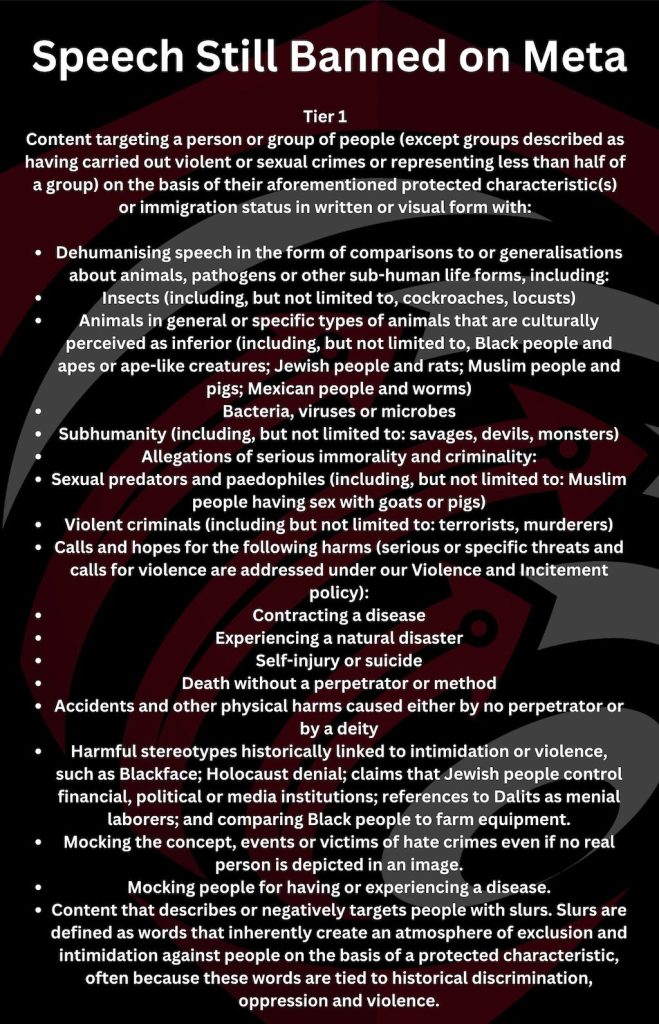Meta’s recent announcement of plans to “restore free expression” on its platforms is accompanied by an extensive list of content restrictions, raising questions about the breadth of speech allowed under the new rules. While CEO Mark Zuckerberg claimed the company is “getting back to its roots” with a focus on open discourse, the detailed policies suggest significant limitations remain.
The updated guidelines categorize prohibited content into two tiers. Tier 1 bans dehumanizing speech, such as comparisons to “animals” or “pathogens,” and stereotypes such as claiming that certain groups control financial, political, or media institutions. Allegations of serious immorality or criminality, such as calling someone a terrorist or pedophile, are also prohibited.
The policy also forbids mocking alleged hate crime victims, using targeted slurs, or expressing harmful wishes, such as hoping someone contracts a disease or experiences a disaster. Even expressions as simple as saying someone “makes me vomit” fall under the banned list when targeting individuals based on protected characteristics.
Tier 2 extends restrictions to statements that support exclusion or segregation, such as denying someone access to spaces, jobs, or social services. Insults based on character, mental capacity, or physical worth are similarly prohibited, though some exceptions are made for gender-based insults in specific contexts, like romantic break-ups.
Contradictions and Exceptions
The policies do make exceptions for certain types of speech. Accusations of mental illness or abnormality are permitted when based on gender or sexual orientation, under the justification of reflecting political and religious discourse. Similarly, gender-based exclusion in spaces like bathrooms or sports leagues is allowed. […]
— Read More: reclaimthenet.org


